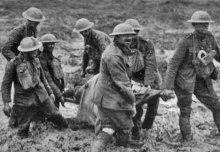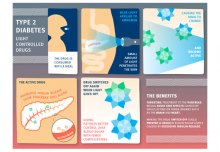

access to care
Emergency hospital admissions via A&E rise while those via GPs fall
More people were admitted to hospital via A&E and fewer via their GP in 2010/11 compared with 2001/2, according to a new analysis.



Emergency hospital admissions via A&E rise while those via GPs fall
More people were admitted to hospital via A&E and fewer via their GP in 2010/11 compared with 2001/2, according to a new analysis.


WW1 surgeons could do little for amputees' pain
Army doctors in the First World War were helpless to stop soldiers who lost limbs from suffering in pain, according to researchers.


Could drugs designed to suppress appetite also treat addiction?
Scientists at Imperial are planning to investigate whether appetite-regulating hormones produced by the gut could reduce the urge to smoke and drink.
 1
1


European salamanders and newts vulnerable to fungal disease from Asia
A skin-eating fungal disease brought to Europe by humans now poses a major threat to native salamanders and newts, scientists have warned.
 1
1


New class of drugs shows promise for treating chronic diarrhoea
A pilot study testing a new type of drug in patients with chronic diarrhoea has shown promising effects on reducing their symptoms.


Scientists "must get better" at assessing pandemic threat from flu viruses
Scientists should not become complacent when assessing which strains of influenza virus could cause a pandemic, a consortium of researchers says.


New test can help doctors choose best treatment for ovarian cancer
Researchers have devised a new test to help doctors diagnose ovarian tumours and choose the most appropriate treatment.


Light-activated drug could reduce side effects of diabetes medication
Scientists have created a drug for type 2 diabetes that is switched on by blue light, which they hope will improve treatment of the disease.


New cancer drug to begin trials in multiple myeloma patients
Scientists at Imperial College London have developed a new cancer drug which they plan to trial in multiple myeloma patients by the end of next year.
 5
5


First pictures of BRCA2 protein show how it works to repair DNA
Scientists have taken pictures of the BRCA2 protein for the first time, showing how it works to repair damaged DNA.
 3
3